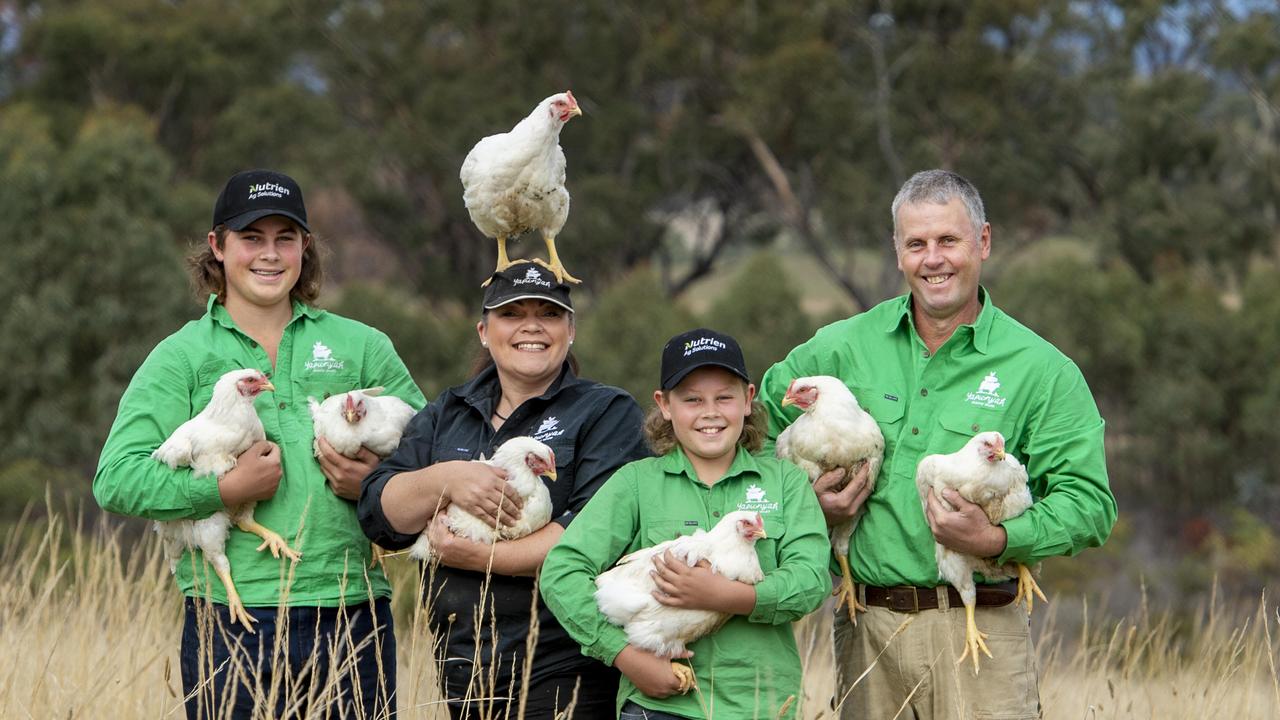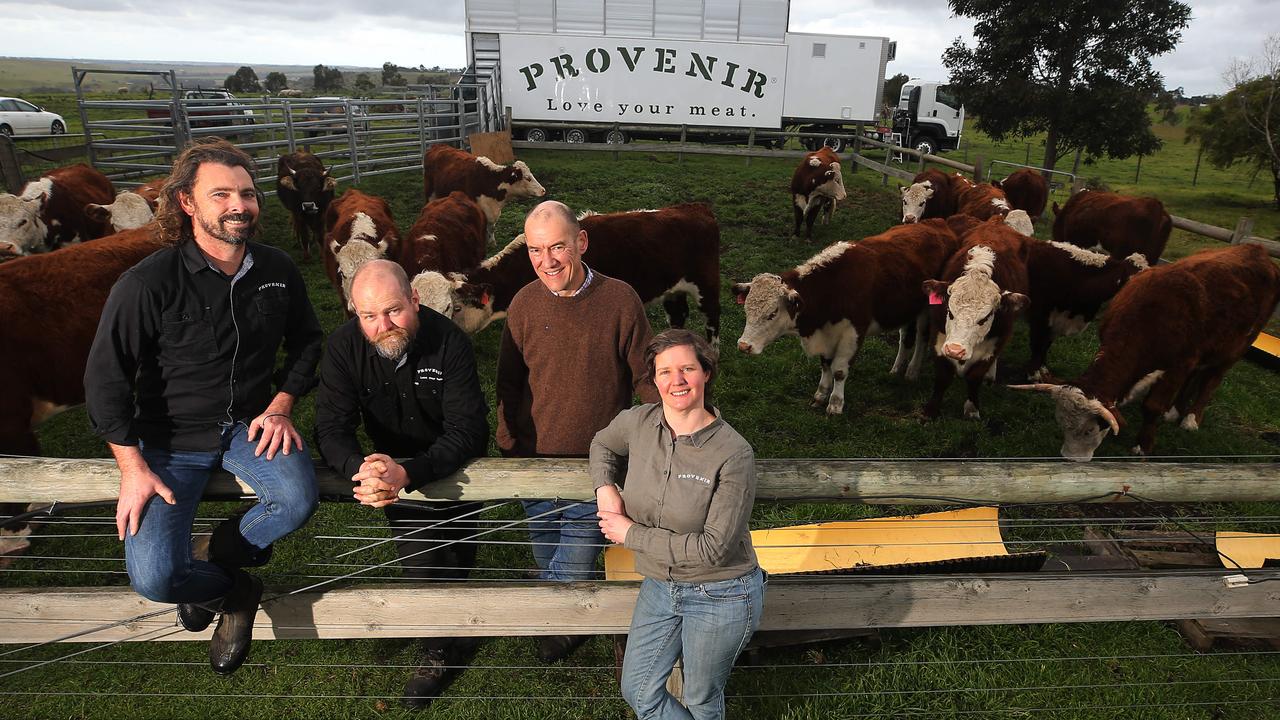Rachel Ward embraces regenerative agriculture, plans farming documentary
The legendary Australian actor, who also farms cattle, joins two NSW grazing families to explain how regenerative agriculture has transformed the health of their land, pasture and businesses.
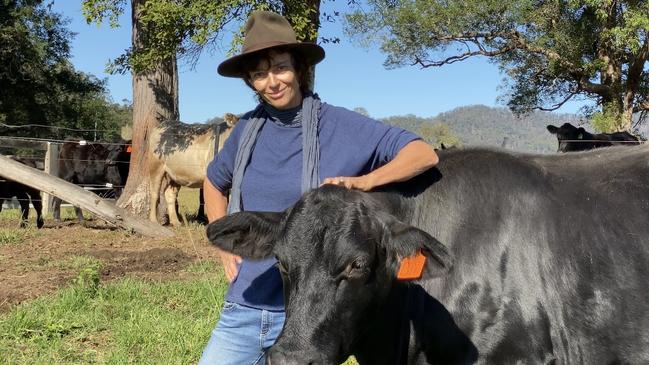
Sam Johnson and his family are long-time supporters of regenerative farming, while Bundle and Peter Lawson converted 13 years ago, and actor Rachel Ward implemented changes to her grazing property in 2019.
The three families come from different backgrounds, but are united in their support of regenerative farming methods, which focus on regenerating soils, increasing biodiversity and improving the water cycle.
All guest speakers at the recent Farming Matters conference, they are convinced the approach can bring much-needed change, believe support is growing and have first-hand proof of its success.
RACHEL WARD AND BRYAN BROWN
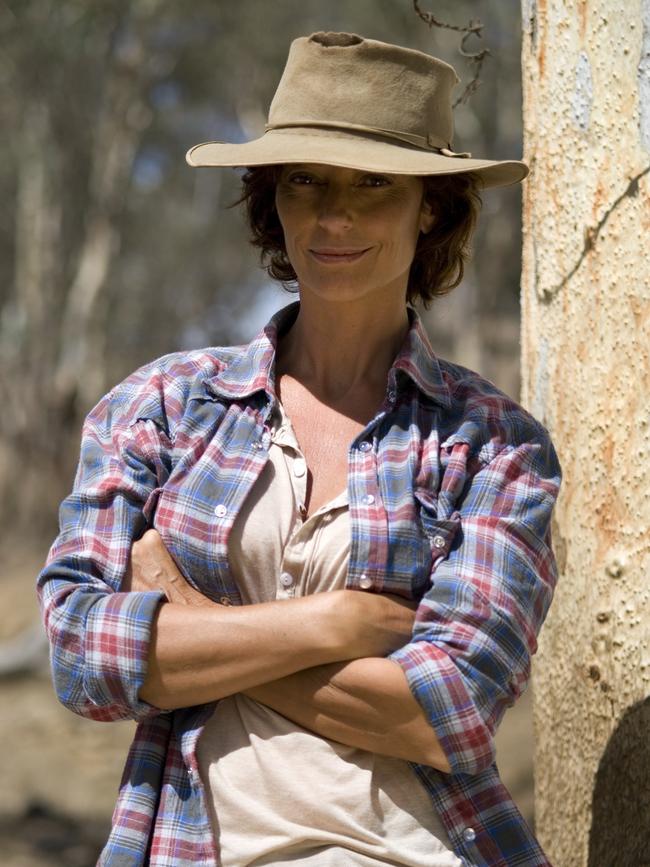
Filmmaker Rachel Ward and her husband, fellow actor Bryan Brown, have run beef cattle near Nambucca, on NSW’s Mid North Coast, for the past 30 years. Since changing to regenerative farming a few years ago, she says every day is an adventure on her property, where they currently run 200 breeders.
“It’s all starting to look quite wild and biodiverse. I get ridiculously excited when another grass species appears or a butterfly I haven’t seen before wafts past. I’m so much more interested in farming than I was before,” Rachel says.
“This is not just about a production line and making a buck, which of course has its place, it’s about healing the country, optimising its great bounty without strangling it.”
Rachel converted to regenerative farming soon after their farm was caught in the 2019 fires.
“We were one of the first hit and I had no idea of the devastation that would follow,” she says. “Earlier that year I’d travelled to the Tablelands and seen the effect of the drought. It looked like pictures from the front line.
“I also noticed that the verges still had coverage and realised that however tough the drought was, management was often responsible for over grazing and bare soil.
“Fires are part of the Australian experience, but I think most agree this one was at another level. Our environmental crisis hit home.”
Rachel says witnessing nature’s ferocity really woke her up, followed by reading Charles Massey’s Call of the Reed Warbler.
“I was so excited by the possibilities for land and food health,” she says.
According to Rachel, it wasn’t hard to implement following Allan Savory’s holistic management formulas. They broke up pastures with one strand of electric wire and rotated cattle quickly so they encourage growth of pasture without over grazing. More water points and header tanks were added, and they turned 30 paddocks into 60.
But it wasn’t without its challenges.
“We had buffalo fly infestations and we tried to control without insecticide but in the end animal welfare became a priority.”
They are now changing to the Senapols breed that tolerates buffalo fly more. Getting good soil structure and retaining water is always going to be a challenge due to the semitropical climate and heavy clay soils.
She is passionate about farming changes.
“I believe in science. I value what the scientists keep telling us. Our climate is changing, our biodiversity is diminishing, our creatures are becoming extinct,” she says. “We have to start thinking about the compound and cascading effects of everything we do. There is a consequence every time we do something that messes with nature.”
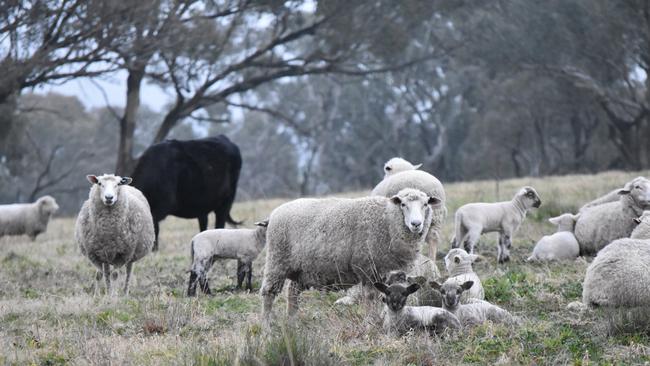
BOXGUM GRAZING
Sam Johnson of Boxgum Grazing near Young, in NSW’s South West Slopes region, believes regenerative farming is a win-win scenario where you can have a profitable farming business producing high quality food and manage natural resources and animals to improve ecosystem function and land health.
Boxgum Grazing run by Sam, wife Claire and son, Sid, produces grass-fed beef and lamb and free-range pork. Stock are slaughtered off farm at Cowra Meat Processors, then transported back to the property as whole carcasses to be
processed through an on-farm butchery
and marketed direct to customers in the local region and Canberra.
The family converted to holistic management in the mid-90s after researching the approach of holistic management crusader, Zimbabwean Allan Savory.
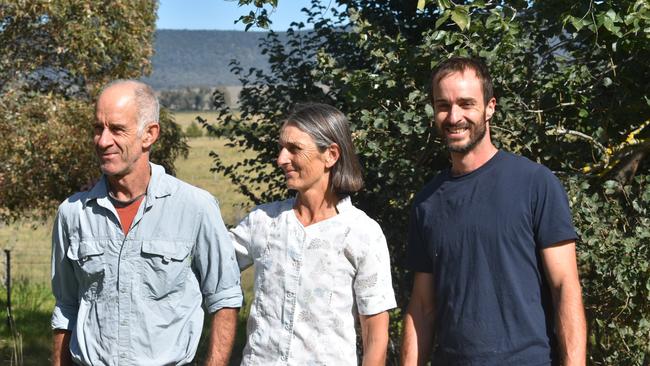
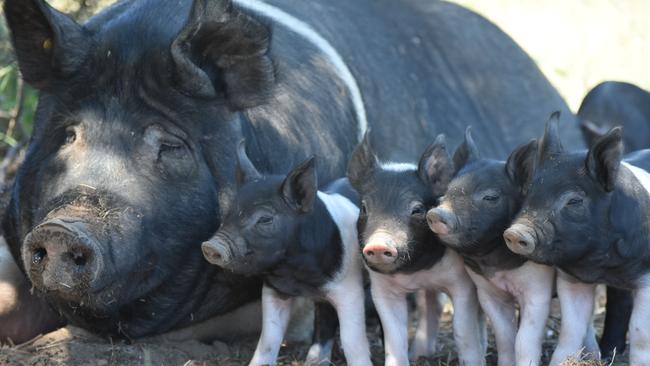
They started regenerative farming on their 1500-hectare property, Windermere, in 2002.
“It was a bit of a light-bulb moment for us – by utilising the process of holistic management we have been able to produce a regenerating landscape and develop a successful paddock-to-plate business,” he says.
By wearing several hats as producer, processor and marketer, Sam says it has allowed them to control product quality and connect with a passionate customer base, keen to know how their food is produced and the outcome on the land.
“The most important change comes from changing your perspective between your ears,” he says. “When you can accept that the condition of farming landscapes is a reflection of the management that has been applied, then you may see that changing the management paradigm will produce different outcomes.”
Sam says farms function not as isolated units, but as an interconnected part of the whole ecosystem and if managed from that perspective, they can regenerate not just individual parcels of land, but the whole landscape.
“Farming needs to produce positive ecological outcomes at the same time as it sustains the production of healthy nutrient-dense food,” he says.
He believes grazing can be an immensely powerful tool to regenerate ecosystem function once you understand how it can stimulate grass growth and soil microbial life.
“Regenerative farming is important because agricultural landscapes need to be ecologically regenerative to not only sustain food production but to reverse widespread land degradation and declining soil health,” he says.
Sam says support for regenerative farming is growing.
“I think the clear and widespread signs of ecological decline and our current inability to conduct agriculture and our civilisation in a way that does not degrade our life support systems will force us to look for ways that can produce outcomes that can reverse this process,” he says.
“We are only just at the early stages of understanding how to conduct our activities in an ecologically regenerative way, so it is an exciting time in human history.”
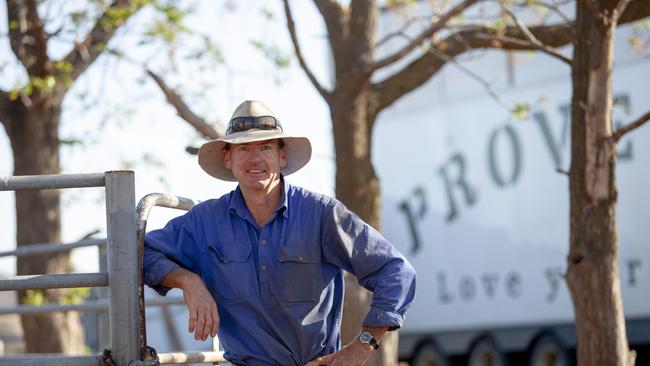
BUNDLE AND PETER LAWSON
Bundle and Peter Lawson grew up on farms and now run both family properties Gundillawah in the Mundarlo Valley and Trewalla at Book Book, in NSW’s South West Slopes.
The mixed grazing operation consists of a self-replacing breeding herd of 750-1100 mainly Angus cattle and flock of 1500-2000 Merino ewes.
Bundle explains the stocking range reflects the fact “we try and react quickly to changes in seasonal conditions and are not hell bent on running certain numbers of stock at the detriment of our pastures”.
They are keen supporters of Provenir, the red-meat processor that has pioneered a mobile on-farm slaughter unit. Selling to Provenir offers the family another marketing avenue for their beef with the convenience of on-farm slaughter in a less stressful environment for cattle, which results in improved eating quality of the meat.
“On-farm processing is a terrific concept and one we will no doubt see more of over time as consumer awareness about where their meat comes from and animal welfare concerns continue to increase,” Bundle says.
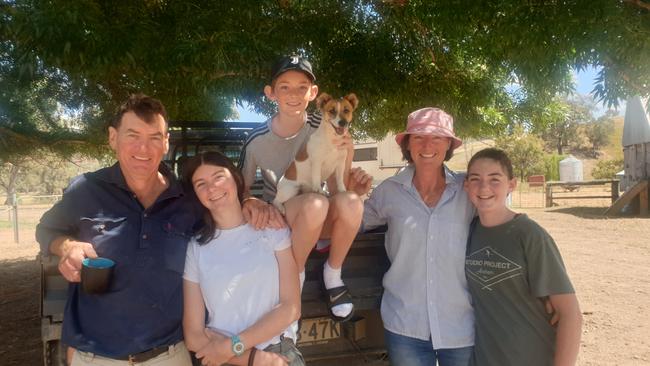
They also sell cattle to feedlots and processors, while the Merino flock produces non-mulesed wool.
The couple converted to Savory’s holistic management approach in 2008, using the framework to move towards their goal of producing high quality, healthy food and fibre in a sustainable, profitable way while regenerating and improving their resource base.
“We re-did the holistic management course together and the effect was immediate. It still hadn’t rained, we still had very low stock numbers and an unnaturally close relationship with our bank manager, but we had regained our purpose and had clarity about where we wanted to be,” Peter says.
“The holistic management focus and decision-making process has helped us through three children, two family successions, an additional property, two major droughts and a bushfire. Despite doubts and plenty of mistakes, we feel we are still trending in the right direction.”
But they have faced many challenges, with difficult seasonal conditions and seemingly only gradual changes to plant species and diversity. Yet, they are happy to be following a plan they believe in.
Regenerative farming has changed their focus from animal production to pasture production, maintaining ground cover and looking after natural resources using variable stocking rates and time-controlled grazing.
They believe if Australian agriculture is going to be sustainable in the future, a way needs to be found to improve the natural resources without relying on ever-increasing amounts of synthetic inputs.
“We need to work with nature, not against it and make sure what you are doing leads towards your own goals, not goals set for you by someone else,” Bundle says.
They say there is an increasing buzz around regenerative agriculture, although there are many components to the complex concept; some easier to adopt than others.
“The recent Farming Matters conference was brilliant for bringing together so many inspirational speakers to talk about the many components of ‘regen ag’, and the attendance figures demonstrated the increasing interest in the subject,” Bundle says.
REGENERATIVE AG ON SCREEN
Rachel Ward wants to share her new-found passion for regenerative agriculture with the masses, and is producing a documentary film with fellow Australian director Bettina Dalton.
In the film, with a working title Standing on the Soilution, Rachel will take a rural road trip to reveal the “regen ag” movement that aims to restore the health of Australia’s farmland and the wellbeing of the farming communities that sustain the nation.
The film, from Wildbear Entertainment in association with New Town Films, has gained support from Screen Australia and Create NSW.
It is currently raising private equity and Rachel hopes to start filming soon.
MORE
GILLIAN SANBROOK FLIES REGENERATIVE AGRICULTURE FLAG

